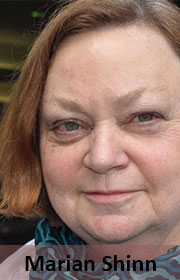 The effects of perpetual policy bungling, which has become the hallmark of the ANC government’s communications ministries, will be laid bare during a two-day public hearing into the cost of communications held in parliament this week.
The effects of perpetual policy bungling, which has become the hallmark of the ANC government’s communications ministries, will be laid bare during a two-day public hearing into the cost of communications held in parliament this week.
During the past two years, I have repeatedly asked for the topic to be included in the programme of the portfolio committee on telecommunications & postal services, and it is with some relief that I recently managed to persuade the chairwoman, Mmamoloko Kubayi, to hold it before this term expires.
The lack of availability of spectrum for wireless broadband services is the major cause of high prices. The unavailability of spectrum has created an artificial scarcity that has stifled competition needed to drive down prices.
The unavailability of spectrum has two main causes:
- The failure of the programme to migrate from analogue to digital broadcasting, thus freeing up the airwaves to create more space for wireless broadband services.
- The failure of policy on how to allocate the high-demand spectrum, which is stalled in a spectrum stand-off between the minister of telecoms & postal services and the Independent Communications Authority of South Africa. The high court will deal with this on 27 and 28 September.
Making more spectrum available to a diversity of network providers will have a major impact on growth and diversity of the ICT sector and the enterprise and social development services it facilitates, leading to economic growth, inclusion of marginalised communities and increased revenue for the fiscus to provide e-government services.
Increased competition, coupled with effective and independent regulation, will drive down communication costs.
The current United Nations definition of “affordable broadband” is that a 500MB allocation of prepaid mobile data should cost no more than 5% of average monthly income. The Alliance for Affordable Internet stated in its 2015-2016 Affordability Report that in South Africa an Internet connection costs the majority of South Africans anywhere between 6-19% of their monthly income.

The alliance is one of 12 presenters appearing before the committee this week, along with the mobile service providers, civic groupings and the Internet Service Providers’ Association.
For this week’s hearings to impact on the cost of communication, it is vital for government to face up to the detrimental effect years of policy bungling have had on stifling citizens’ ability to exploit communications technology. It must back down from its ideological standpoints and give citizens what they want — affordable and plentiful spectrum.
- Marian Shinn is a Democratic Alliance MP and the party’s spokeswoman on telecommunications




